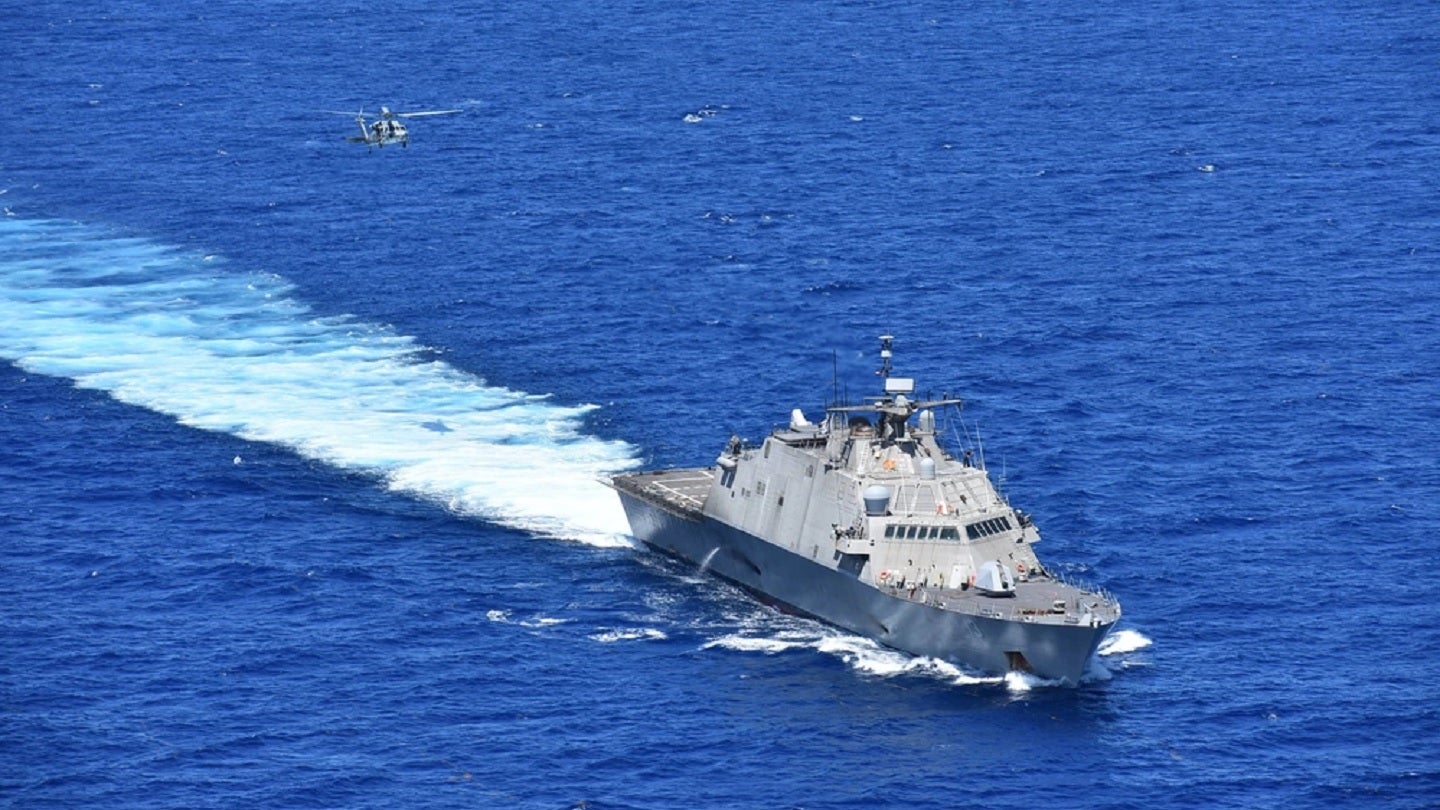
The US Navy’s Freedom-class Littoral Combat Ship (LCS) USS Wichita (LCS13) appears to have been saved from the chopping block as it prepares to undergo a main engine replacement just four years after being commissioned into service, having previously been recommended for removal from the active fleet.
In an 11 August contract announcement from the US Department of Defense, Lockheed Martin Rotary and Missions Systems was awarded a not-to-exceed $8.9m modification to a previously awarded contract to support the main propulsion diesel engine replacement of the USS Wichita. Work will be performed in Mayport, Florida, and is expected to be completed by December 2023.
The 2022 action plan by the US Navy proposed USS Wichita to be one of nine Freedom-class LCS’ to be decommissioned in 2023, alongside USS Forth Worth, USS Milwaukee, USS Detroit, USS Little Rock, USS Sioux City, USS Billings, USS Indianapolis and USS St Louis. Based out of Naval Station Mayport, USS Wichita is assigned to Naval Surface Force Atlantic (SURFLANT).
The report was written by the office of US Navy Admiral Mike Gilday, who on 14 August relinquished the office of Chief of Naval Operations, with current Vice-Chief of Naval Operations Admiral Lisa Franchetti taking up the helm.
In July this year the passage of the US National Defense Authorization Act (NDAA) 2024 saw the prevention of what the House Armed Service Committee called the “Biden administration’s effort to reduce the size of the navy”.
The 2024 NDAA committed to funding of $146m for LCS in-service modernisation, a reduction of some $25m from the original FY 2024 request. An earlier June House Funding Bill specifically precluded the ability for the US Navy to use any funds provided for the purposes of “decommissioning any Littoral Combat Ship”.
Difficulties of the Littoral Combat Ship
Commissioned in 2019, the USS Wichita is the seventh Freedom-class hull to be built under the twin design LCS programme, with more than 30 of the two types subsequently committed to by the US Navy.
Displacing around 3,500 tonnes, the monohull Freedom-class variant is around corvette sized, with a length of 117m and 17.5m beam. The type can reach official speeds of up to 45 knots, making it much quicker than traditional naval warships, but it is lightly armed with a 57mm main gun, the Rolling Airframe Missile system and an embarked rotary capability.
The LCS programme has been beset by difficulties, with reports that the twin variants are not able to operate in contested environments, a euphemism for peer or near-peer combat operations.
By September 2022, three of the first four ships in the LCS programme, the Freedom-class variant USS Freedom, and Independence-class ships USS Independence and USS Coronado, had been decommissioned, having effectively been built as test and evaluation platforms. The USS Coronado is the most recently decommissioned in September 2022, having only joined the fleet in April 2014.
With the USS Wichita having a main engine replacement just four years into its service lift, attention has once again been focused on a key weakness in the Freedom variant LCS, with the US Navy having difficulty in maintaining the type.
However, it appears that the US Navy’s plan to remove a significant portion of its LCS fleet has been put on hold, with the class having only served a handful of years of service likely up to 20 years and beyond.




